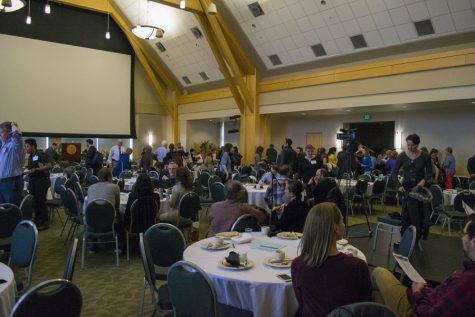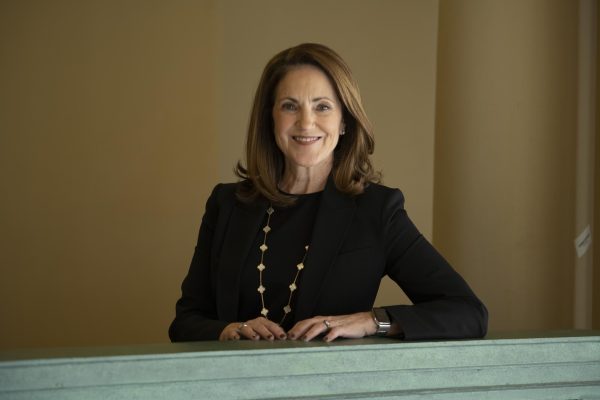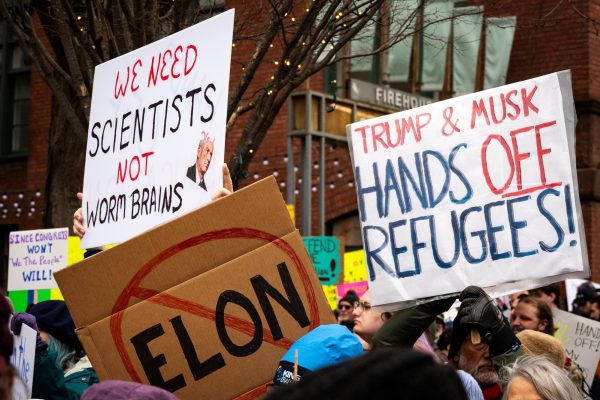Diversity forum educates faculty and staff

UVM students, faculty and Burlington community members gather for the 10th annual Blackboard Jungle Symposium March 31 in the Silver Maple Ballroom.
A crowd of scholars, faculty and students sat in the Silver Maple ballroom waiting to hear a presentation related to diversity at UVM.
UVM held its 10th annual Blackboard Jungle Symposium March 30 and 31. The symposium was hosted by Office of the Vice President for Human Resources, Diversity and Multicultural Affairs, according to the UVM website.
The workshops and discussions are designed to allow the UVM community to gain knowledge and develop skills to better understand diversity, according to the website.
One of the panelist discussions, entitled “Free Speech and Hate Speech: Can They Coexist,” focused on universities’ role in upholding free speech.
“[As a public institution, UVM] cannot prohibit the right to free speech, no matter how noxious, odious, or hurtful,” said University President Tom Sullivan, who was one of the panelists.
There are only four instances where UVM, or any public institution, could censor speech: if the speaker was involved in criminal activity, presented a clear and present danger, said something defamatory or if they said something obscene, Sullivan said.
Any speech, unless it falls into these four categories must be protected; it is the University’s responsibility to ensure an inclusive dialogue, he said.
Panelists discussed the Charles Murray incident at Middlebury College and the riots at UCLA over Milo Yiannoupolous, former senior editor at Breitbart News.
Murray is a social scientist who believes in the genetic inferiority of Latinos, black folks, women and the poor, according to the Southern Poverty Law Center.
Murray’s recent visit to Middlebury College resulted in a student protest where one professor was injured, according to a March 3 New York Times article.
When colleges invite speakers who promote intolerance it is difficult for a campus to have even discourse, said Traci Griffith, a panelist and department chair of media studies, journalism and digital arts at Saint Michael’s College.
The types of speech Yiannopolous and Murray engage in creates an atmosphere of fear and harassment, which inflicts psychological violence on the groups of people who their speech targets, Griffith said.
By inviting such speakers, a university might be promoting the educational process for some students while inhibiting learning for others, she said.
Emma Redden, a student at Goddard College who attended the symposium, empathized with Griffith`s worry.
“The idea that we want to promote people who want to commit violence and have the power to commit violence,” Redden said.”I completely disagree with it.”
During her presentation as a panelist, Annie Stevens, vice provost for student affairs, recalled several recent incidents of xenophobia at UVM.
UVM is not immune to hateful speech, but though these instances were all ugly, they often led to moments that helped students distinguish between expressing opinion and expressing hate, Stevens said.
“We do that on college campuses by teaching students how to think critically,” she said.
Stevens also cited many ways in which UVM encourages a dialogue, which some students notice and appreciate.
“There are a lot of different groups that make people feel comfortable enough to voice their opinions,” sophomore Morgan Ferland said
However, to facilitate conversations about diversity among students, faculty and staff must also be educated, said Sherwood Smith, director of UVM`s Center for Cultural Pluralism.
“I don’t know if dialogue about race and social justice is balanced anywhere in the U.S.,” Smith said.”I think UVM is actively working to engage those issues.”
Blackboard Jungle helps the faculty increase engagement with the students by giving them a deeper understanding of key issues, she said.









